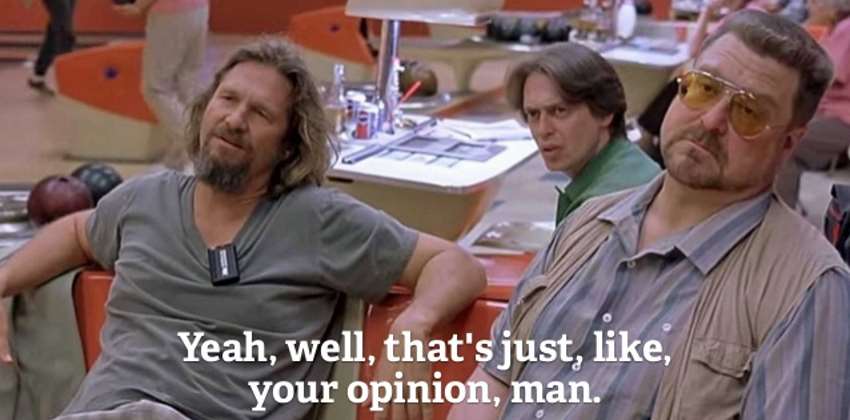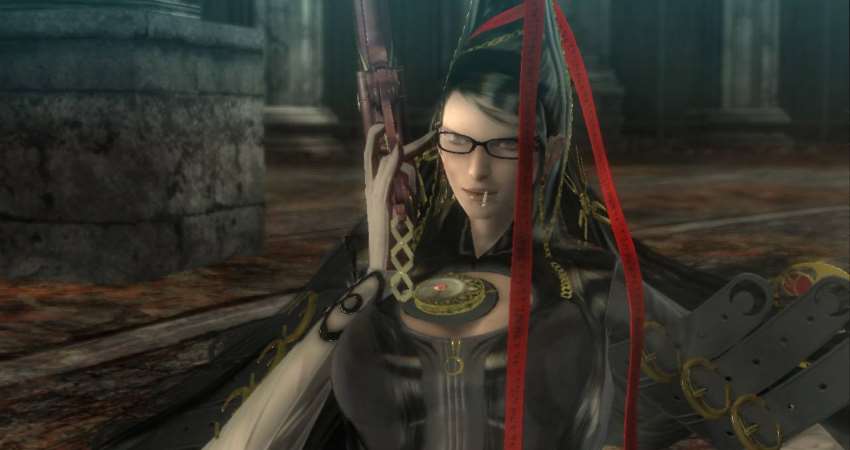Ramblings: Objectively Speaking

Probably tens of thousands of words on this blog have catalogued my ever-growing and expanding perspective on game reviews. I’d imagine during the site’s inception ten years ago I was thoroughly convinced that journalism was broken and needed some enlightened fellow like myself to come along and save it. I even came up with a video game variant of John Updike’s Six Rules for Constructive Criticism.
Many of those words were penned with an attitude of frustration and aggression towards games press that I no longer possess. I may just be getting tired in my ripe old age of thirty-three, or I may finally be maturing like I should have a decade ago. It could also be that I’ve finally come to terms with the source of my aggression being an insecure belief that no one cares about what I have to say about games. Regardless, I have grown to appreciate that there’s a vast ocean of games writing out there. I may not agree with all of it – or more specifically, I may not agree with many of the attitudes behind some opinions – but between the written word, podcasts and YouTube, there’s a little something for everyone out there.
Nevertheless, I feel like I’ve kept my lips sealed a bit too long on the topic of objectivity in recent days for fear of losing the respect of would-be readers. It seems common to hear the word “objective” in regards to reviews and scoff. Of course there’s no such thing as perfect objectivity! I even opened my analysis of God of War with just such an observation!
However, just because perfect objectivity is impossible does not mean that critics should ignore it as a personal goal.
Before I dig in any further, let’s start with subjectivity. To be subjective means to be influenced by personal feelings or tastes. As I noted in the introduction to my essay on God of War, to even be a critic means having a passion for the medium in which you are critiquing. That passion itself establishes an emotional bias. The foundations of that passion – the individual examples of the medium that would inspire a yearning for it – is going to further influence our expectations of what is good and bad.
So there you have it. No matter what, we are unable to escape our subjective opinions, right? Well, fortunately for us humans we are fully capable of asking the very simple question of why. Why do I enjoy this song so much while this other tune bores me? Why do I find this political drama so captivating despite its complete lack of spectacle and explosions? Why do I enjoy spectacle and explosions at all? What is it about this game that compels me to return to it each night?
Without these questions we wouldn’t be able to innovate or develop beyond what has come before. Works of art would only be imitation rather than evolution. By asking these questions we are seeking to step outside of ourselves so that we might find an objective understanding.

Have a screenshot of the Mega Man 11 demo for no particular reason.
The problem with arguments in which objectivity and subjectivity arise is that they often revolve around misunderstandings of how both concepts do or should work. Seeing the term “everything is subjective” pulled out in the middle of an argument is the sort of thing that makes my eye twitch. Years of academic study of literature, game theory, and film direction tossed to the wind because “that’s, like, just their opinion, man”. On the opposite end of the spectrum are the heroes-of-their-own-minds decrying any review that takes umbrage with specific types of content, demanding nothing but “objective reviews” in order to slap a seemingly ethical label on intellectually dishonest desires.
Without a desire for objectivity then there is no point to discussing art. In fact, there is no such thing as good art at all*. It simply comes down to a matter of like and dislike with no further purpose for evaluation. The second you try to explain why you like it, you begin to try and objectively explain what makes it worth liking.
The problem is when individuals are no longer capable – or willing – to ask why they like or dislike something.
I’ve read and discussed a variety of theories as to why this may be. Often the desired explanation is a cynical scapegoat of the academic system. People are no longer being taught to truly think, or an entire generation of participation trophy winners simply accepted the notion that their ideas were acceptable as-is. Having looked back on old essays and letters from prior generations of writers – many of whom were deceased before personal computers were even in the hands of consumers – I’d argue that it’s an old problem transformed due to the added variables of the Internet and an ever-shifting culture. There’s no one particular scapegoat, and if the cause is a society of narcissists then consumerist marketing is just as likely to blame as any other reason.
Regardless of the cause, we must first acknowledge the beneficial purpose to not only discussion, but disagreement. To get a bit philosophical, I believe the very concept of “truth” is impossible for any one human to possess**. There may be some scientific variables we can measure factually, but there will always be concepts, ideas, and experiences that we can never know. As a thirty-three year-old man I cannot know what it’s like to be a thirteen year-old girl in middle school. It creates a barrier between me and my niece, inhibiting my ability to relate to and understand a time of life defined by constant changes. I’d even struggle to properly relate to my nephew as he enters that time in a few years, as those changes have become so normalized I can no longer remember what it was like to first experience them.
The same can be said of something as simple as glasses. Wearing them is so normal I don’t even think about reaching for them first thing in the morning. My hand reaches out automatically. Glasses somehow being a detriment to my function is so foreign a concept because my glasses simply are.

To some, Bayonetta is an empowered character that owns her sexuality. To others, she’s an impossible ideal that caters to fantasies of objectification. Both perspectives can be true.
Not only can the same be said for how we respond to certain media, but why we respond to certain media differently. By disagreeing with each other, we can begin to uncover our own biases for the sake of new understanding of our tastes and our limitations. I can only talk about certain kinds of good game design. If I were to sit down and try to tackle why a strategy or sports game works well, it’s going to be the voice of an outsider.
Not to say this can’t be as useful a voice as those that are deeply involved in certain mediums or genres. Such a voice can help developers – or writers, film-makers, etc. – when crafting an experience intended to appeal to a broader audience, or to perhaps create a bridge between two separate audiences. It can also help developers understand why a potential audience may be feeling incapable of crossing the threshold.
Keep in mind I’ll be discussing the value of exclusivity in the future, so don’t take this to mean I believe all things must be accessible to all possible audiences (in a sense of taste, not a sense of handicap or disability. That is a topic I am ill-equipped to discuss). However, I do believe there are people out there that are 80-90% on board with something, but that 10% prevents them from joining the inner circle.
When I write, I do my best to make it clear that I’m putting forth what I believe to be true without making declarative statements. Sometimes I cannot help but phrase things in a purely objective manner. It happens. It’s a lot easier than beginning each sentence with a variant of “in my opinion”.
However, it doesn’t mean my statement does not have a truth to it, just as someone disagreeing also speaks a variant of the truth. Objectively speaking, we can both be correct. The problem is in understanding how.
The first step is to simply recognize our own biases. The second is to be open to the biases of others and delight in disagreement. Rather than dismissing any possible conflict with the get-out-of-jail-free card that is “no such thing as a wrong opinion”, we simply accept that we all have something to bring to the table.
If our goal is to achieve greater understanding of art rather than bludgeon someone else with how wrong they are, then we can truly grow as individuals, as communities, and as creators.
* “No such thing as good art” is most certainly an idea worth discussing, but would be too much of a semantic digression for my point here.
** I may tackle my belief towards theological truth in a Sunday Studies column another time. Perhaps when I’m feeling less nervous to poke that particular bear with a pitchfork.


